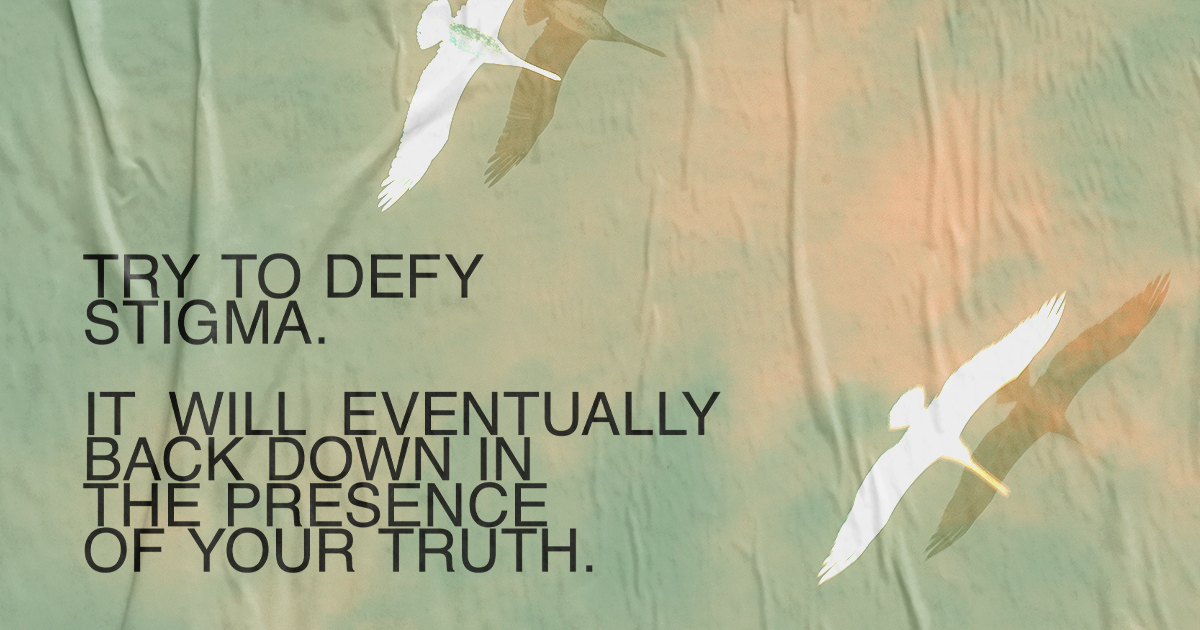Growing up in a Vietnamese household, I was exposed to stigma before I even knew there was a word for it. Stigma in an Asian household is different than Western perspectives—not due to ignorance or a lack of knowledge but from cultural and language barriers. There is no term for “mental health” or “mental illness” in my family’s culture. This makes stigma powerful, as silence and shame feed it. For years, I struggled alone because I didn’t have the words to communicate what I was experiencing. I wanted support but I didn’t know how to ask for it. I wanted help but I didn’t know what it would look like because I wasn’t aware that therapy and medication existed. I didn’t realize the important role a support system played because I didn’t have one. But then, something changed.
A few years into my mental illness, I received a new diagnosis—one that was treatable through antidepressants and mood stabilizers. Suddenly, it became easier to talk about my mental health because I had tangible proof. I could explain my emotions, thoughts, and behaviors. I could explain the chemical imbalance that was taking place in my brain. I could explain that my body wasn’t working at an optimal level and needed assistance to feel good, to feel like myself. But I still couldn’t explain the stigma. I couldn’t explain why I had hidden from my family for so long or why I was ashamed of feeling the way I did. I couldn’t explain why some days I would stay in bed or why I would react so intensely to situations.
In Vietnamese culture, stigma represents itself differently than in Western society. While certain stigmas exist, there isn’t one when it comes to taking medication. At least once a week, my grandma will ask if I’ve taken my medication. Whereas in Western culture, there is a disconnect between the physical and the mental. There is a stigma in taking medication, there is a fear that taking them can and will change us. But in my Vietnamese family, change is a good thing. Changes in my body mean positive changes in my mind—which are encouraged and accepted.
My takeaway from these varying experiences is this: Give people the chance to support you, to understand. I was afraid my family would invalidate my pain and my illness. And while it’s a learning curve, stigma does lessen when you speak openly and honestly. People can surprise you. You will face barriers, whether it’s language, culture, or perspective, but barriers can be broken through communication. This journey I’m on is not a race nor is it meant to be taken alone. Stigma convinces us of the opposite. My family may not fully understand the hurdles I face, but they are trying. And that effort matters.
Try to defy stigma. It will eventually back down in the presence of your truth.

Francesca Moser
Thank you for this article! It was very moving. I work with a small start-up that is looking to make mental and behavioral health a focus by creating an awareness campaign and donating a portion of our proceeds to organizations such as TWLOHA. We have been conducting short-form interviews to talk about important topics such as mental and behavioral health. I would love to have you on the show. We are calling these sessions BevTalks. You can see the ones we have produced so far on our website http://www.bevkarma.co. The interview would be recorded on zoom and then curated into shorter form content to be shared on social media. I believe conversations can change the world so I’m hoping to host passionate people who can help us shed light and fight the stigma of mental health, especially in communities of color. If you have any questions please feel free to reach out.
Chelsea H
Love this!! I’ve faced a lot of stigma with my extended Chinese family. They still, to this day, believe I shouldn’t take “western medication” but after a suicide attempt they finally conceded that I need it. Ty for this much needed Asian perspective!
Jeanna
Stigma is hard to fight. Thank you for your honesty. The way you explained “My body isn’t working at optimal level, I need assistance to feel good, to be myself “ helped me understand how to communicate my feelings about my mental illness as a real illness. Thank you